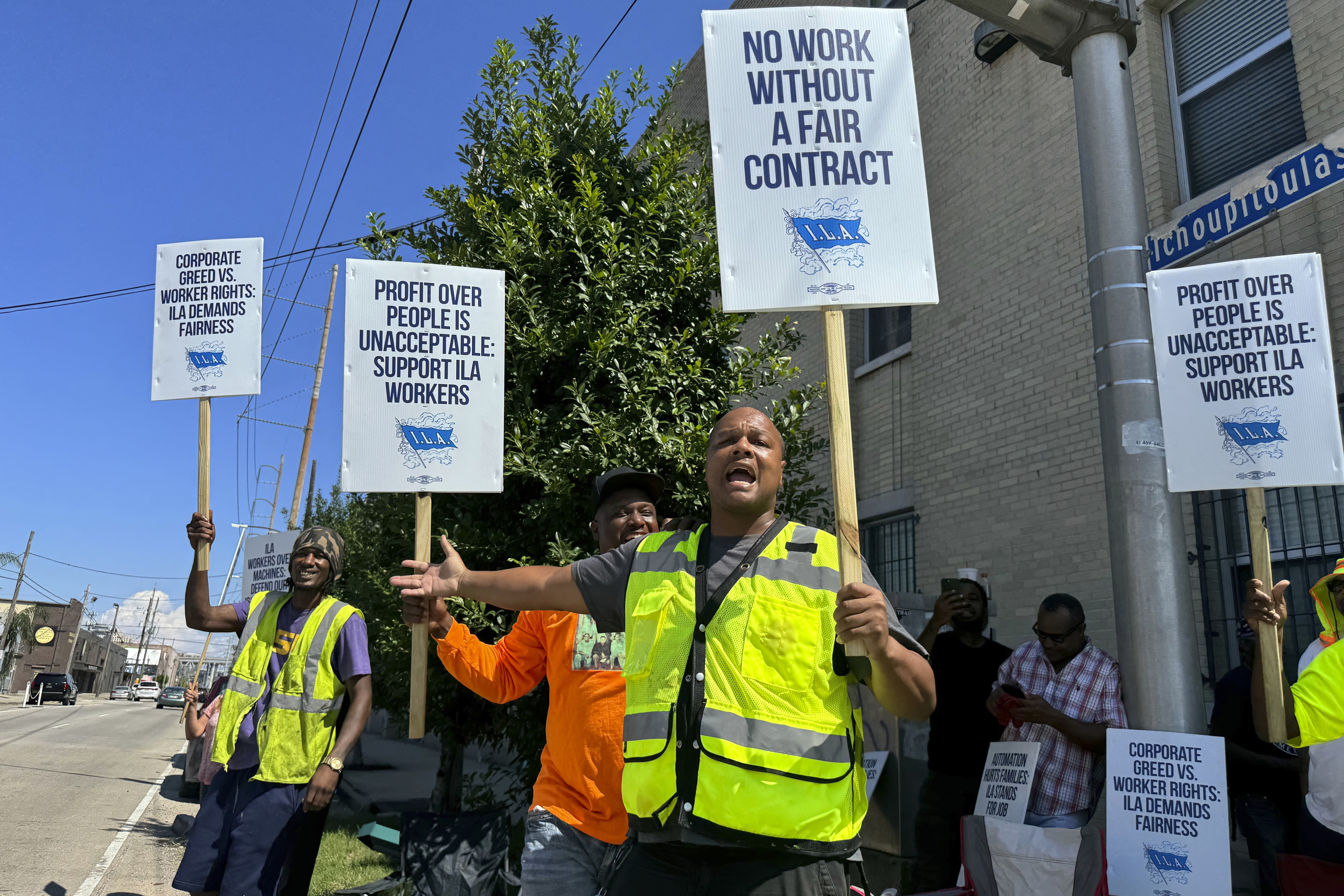
US East Coast and Gulf Coast ports began reopening on Thursday night after dockworkers and port operators reached a wage deal to settle the industry's biggest work stoppage in nearly half a century, but clearing the cargo backlog will take time.
The strike's end came sooner than investors had expected, taking the fizz out of shipping stocks across Asia on Friday as freight rates were no longer expected to surge.
At least 54 container ships queued up outside the ports over three days as the strike prevented unloading and threatened shortages of everything from bananas to auto parts. The figure by Everstream Analytics was calculated at 4:00 pm. More ships are sure to arrive.
The International Longshoremen's Association (ILA) workers union and United States Maritime Alliance (USMX) port operators announced the deal and an immediate end to the strike late on Thursday. Sources said they had agreed a wage hike of around 62 percent over six years, raising average wages to about $63 an hour from $39 an hour.
Shares in shipping companies in Asia fell heavily across Asia.
"Shipping stocks had previously rallied on expectations of price increases triggered by the strike by US dock workers and the tense situation in the Middle East," said Taishin Securities Investment Advisory analyst Tony Huang.
"Now the strike will end, meaning the price rise factor is no longer in play."
ALSO READ: US port workers and operators reach deal to end East Coast strike immediately
The ILA launched the strike by 45,000 port workers, their first major work stoppage since 1977, on Tuesday, affecting 36 ports from Maine to Texas. JP Morgan analysts have said the strike would cost the US economy around $5 billion per day.
Retailers account for about half of all container shipping volume, with Walmart, IKEA, and Home Depot among those that heavily rely on the East Coast and Gulf Coast ports, according to eMarketer analyst Sky Canaves.
According to bill of lading data from Import Yeti, a data firm, some of the importers relying on affected ports range from IKEA and Walmart to Goodyear Tire & Rubber.
East Coast ports are also key destinations for coffee, and prices have already risen due to the port disruptions.
The strike ended with the tentative deal on wages, though the two sides will continue hammering out other issues, including ports' use of automation that workers say will lead to job losses.
"The decision to end the current strike and allow the East and Gulf coast ports to reopen is good news for the nation’s economy," the National Retail Federation said in a statement. "The sooner they reach a (final) deal, the better for all American families."


